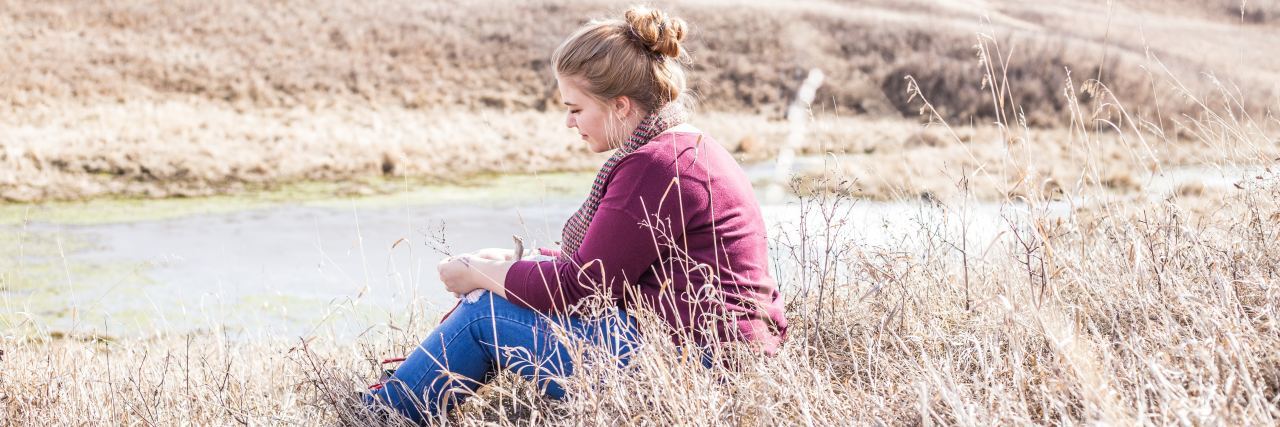What It Was Like to Receive a PTSD Diagnosis
Editor's Note
Any medical information included is based on a personal experience. For questions or concerns regarding health, please consult a doctor or medical professional.
It was late spring when my daughter was born. She was perfect from the day she came into this world. She filled my heart with joy; I’ve never fallen in love so fast. I wanted her to have all of the best things in life — the best experiences and the most loving relationships. Those first few months were magical, and I grew in ways I never expected.
Then the fall came, and I began to notice something wasn’t right — not with her, but with me. She continued to grow and smile, and blow bubbles and explore the world around her. I began to fall apart in ways I had never experienced before. Although I have bipolar disorder, with the help of a doctor, therapist, multiple medications and the support of loved ones, I have managed it fairly well. It was rare that I would fall apart and have to miss work while we changed something with my meds; maybe every year or two I would go through this, and after a few days at home and an alteration to my medications I would be back to work and could live my life again.
This time was different. I was seeing a new therapist and we had begun talking about what happened to me in middle school — an intense bullying situation that I had never in 17 years of therapy ever talked about. I was flooded with emotions, and the fear of what will happen when my daughter would be old enough to go to middle school. Would I be able to protect her, prepare her to stand up for herself or at the very least help her through in a way that no one was able to do for me at that age?
Then my husband and I went to the American Foundation for Suicide Prevention’s Out of Darkness walk in my town. There was a man there talking about Post-traumatic stress disorder (PTSD), and how he has struggled with it not because of a war zone, but because of the abuse he experienced as a child. I had thought up to that point that only soldiers struggle with PTSD. I had no idea that childhood experiences could cause it as well.
We left the walk early, and by the end of the day I had called the emergency line to get in touch with my psychiatrist because I had completely unraveled. He gave me instructions that got me through the weekend. When I met with my therapist that week, she confirmed that I do in fact have PTSD. Of all the ways I could have responded, I actually felt relieved. It was like I had found the missing puzzle piece that explains the parts of my mental health journey that had always remained a mystery until then.
I had always been labeled “sensitive.” I never liked that label, but I could not argue against the evidence — I would have meltdowns where I would cry uncontrollably, heaving, unable to speak, over something that was said or a conversation that turned ugly. My diagnosis of bipolar disorder never explained these, and I never knew they were panic attacks until I began learning about PTSD.
A year has passed since my diagnosis. I now have anxiety medication that I can take when I feel a panic attack coming on, and I can manage them much better now that I know what they are. I have been seeing another therapist who specializes in eye movement desensitization and reprocessing, or EMDR treatment. She is helping me process the trauma I experienced in a way that is healing. I have taken up yoga, which helps me connect my body and mind. I have much work left to do to continue to heal and grow, but I still feel relieved to know that there is an explanation for my struggles.
Follow this journey on the author’s blog.
This story originally appeared on Love Letters to Laura.

